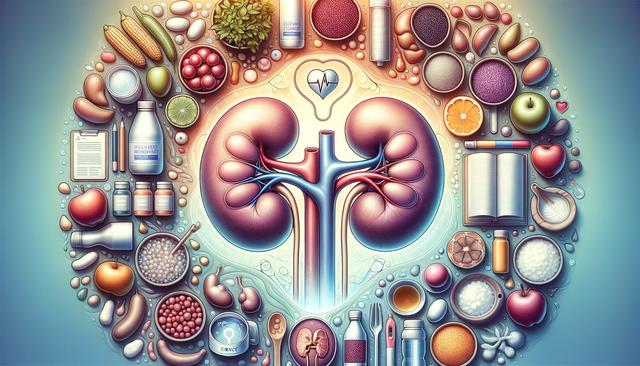Recognizing Early Warning Signs of Kidney Disease
Kidney disease often progresses silently, with symptoms becoming more noticeable only in the later stages. However, early recognition of signs can make a significant difference in managing the condition. Common early symptoms include fatigue, difficulty concentrating, and changes in urination patterns. For instance, individuals might notice increased frequency at night, foamy urine, or blood in the urine. Swelling in the feet or ankles due to fluid retention is also a common indicator. These signs should not be ignored, particularly in individuals with risk factors such as diabetes or high blood pressure.
In addition to physical symptoms, laboratory tests can reveal early kidney issues. Elevated levels of creatinine and urea in blood tests often precede more noticeable symptoms. A reduced glomerular filtration rate (GFR) is a key indicator of declining kidney function. Early detection allows for more effective interventions and could potentially slow the progression to later stages, such as stage 4 CKD.
Understanding the Transition to Stage 4 Kidney Disease
Stage 4 CKD is characterized by a severe reduction in kidney function, typically with a GFR between 15 and 29. At this stage, the kidneys are no longer able to efficiently remove waste and excess fluid from the body. Symptoms become more pronounced and may include:
- Persistent fatigue
- Muscle cramps or twitches
- Nausea or vomiting
- Loss of appetite
- Changes in taste or breath odor
It becomes imperative to adopt a tailored health management plan. This includes regular consultations with a nephrologist and maintaining optimal control of underlying conditions such as diabetes and hypertension. Understanding the progression toward end-stage renal disease can help patients make informed decisions about treatment options, including alternatives to dialysis.
Alternatives to Dialysis in Stage 4 CKD
While dialysis is a common treatment for advanced kidney disease, it is not the only option. Some individuals may explore alternatives or supportive therapies to maintain quality of life. Conservative management, for example, focuses on symptom control, diet, and lifestyle adjustments without dialysis. This approach may be suitable for individuals with other serious health conditions or those who prefer a non-invasive approach.
Kidney transplantation is another alternative, though it requires eligibility screening and a suitable donor. For many, making lifestyle adjustments and adhering to a specialized diet can delay the need for dialysis. Important elements of this approach include:
- Limiting protein intake to reduce waste buildup
- Managing fluid and electrolyte balances
- Monitoring and controlling blood pressure and blood sugar levels
Understanding “What is the Best Thing to Drink for Your Kidneys” can also play a role. Hydration with kidney-friendly fluids like water and herbal teas can support remaining kidney function.
Diet and Lifestyle for Kidney Health
Dietary choices are crucial in managing CKD, particularly in stage 4. A well-formulated “Diet for Diabetes High Blood Pressure and Kidney Disease” can regulate critical health markers and support kidney function. Key dietary recommendations include:
- Reducing sodium intake to manage blood pressure
- Limiting phosphorus and potassium-rich foods to avoid mineral imbalances
- Choosing high-quality protein in moderation
- Controlling carbohydrate intake for blood sugar regulation
It’s also important to focus on “What to Drink to Keep Kidneys Healthy”. Water remains the most essential beverage, supporting toxin removal and hydration. Unsweetened cranberry juice, in moderation, and certain herbal teas may also provide benefits. Avoiding sugary drinks, soda, and excess caffeine can prevent additional strain on the kidneys.
Regular physical activity, smoking cessation, and stress management are also vital components of a kidney-friendly lifestyle. These habits not only support kidney health but also contribute positively to overall well-being.
Monitoring and Managing Health at Stage 4
Close medical supervision is essential in stage 4 CKD. Routine blood and urine tests help monitor kidney function and detect complications early. Blood pressure and blood glucose must be kept within target ranges, as these are major contributors to kidney damage. Medications may be prescribed to control these conditions, along with supplements to manage anemia or bone health, common complications in advanced kidney disease.
Understanding the implications of various treatment options and planning ahead can reduce anxiety and improve outcomes. Patients are encouraged to have open discussions with their healthcare providers about symptom management, lifestyle changes, and potential therapies. Emotional support through counseling or support groups can also help individuals and families navigate the challenges of living with CKD.
Conclusion: Taking Proactive Steps Toward Kidney Health
Recognizing the early signs of kidney disease and understanding the implications of stage 4 CKD can empower individuals to take proactive steps toward managing their health. While the progression of CKD presents serious challenges, options such as conservative management, lifestyle adjustments, and potential transplantation provide alternatives to dialysis. Prioritizing a kidney-friendly diet, understanding “What to Drink to Keep Kidneys Healthy,” and adhering to a “Diet for Diabetes High Blood Pressure and Kidney Disease” are essential strategies in preserving kidney function and enhancing quality of life. Collaboration with healthcare professionals and informed decision-making are central to navigating this complex condition with confidence and care.




Leave a Reply